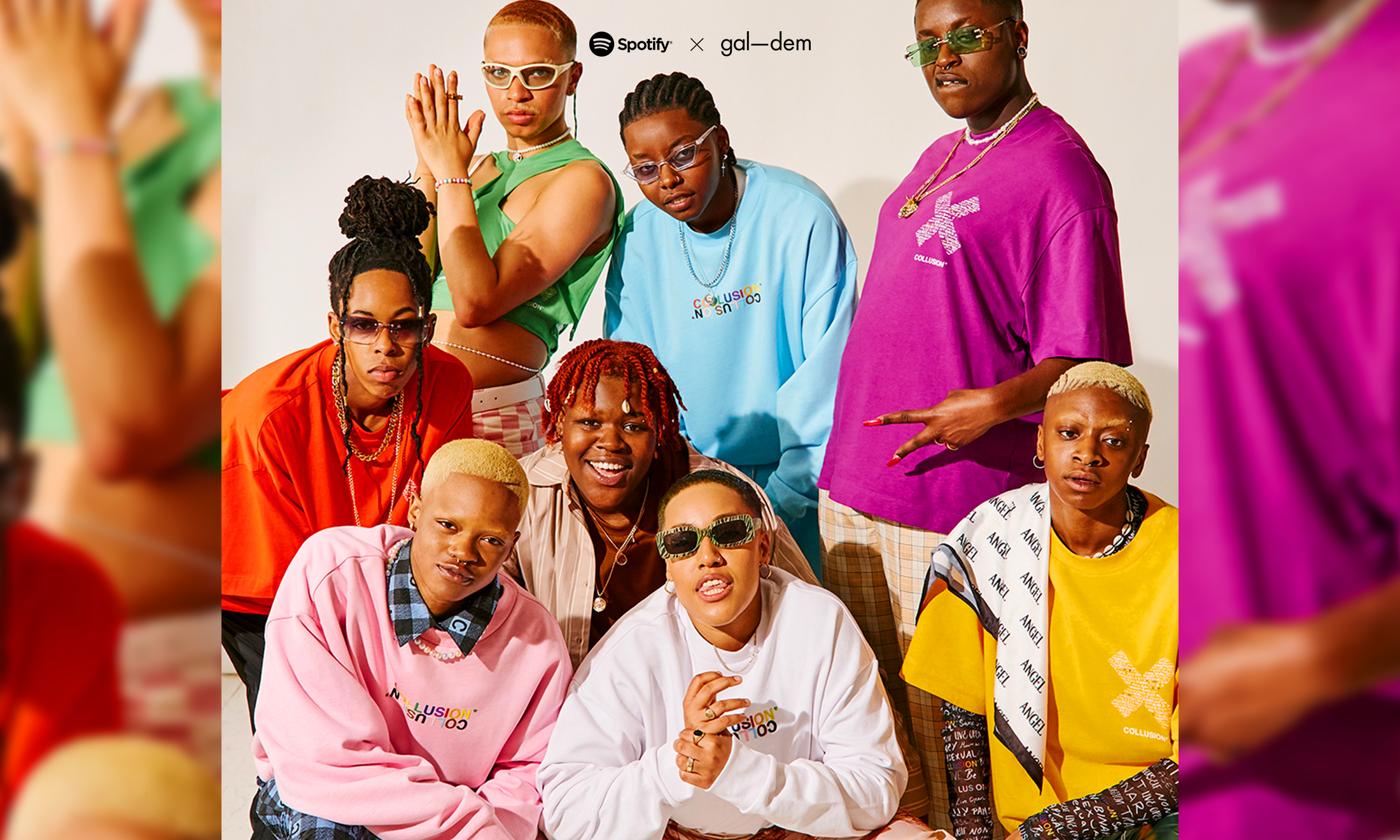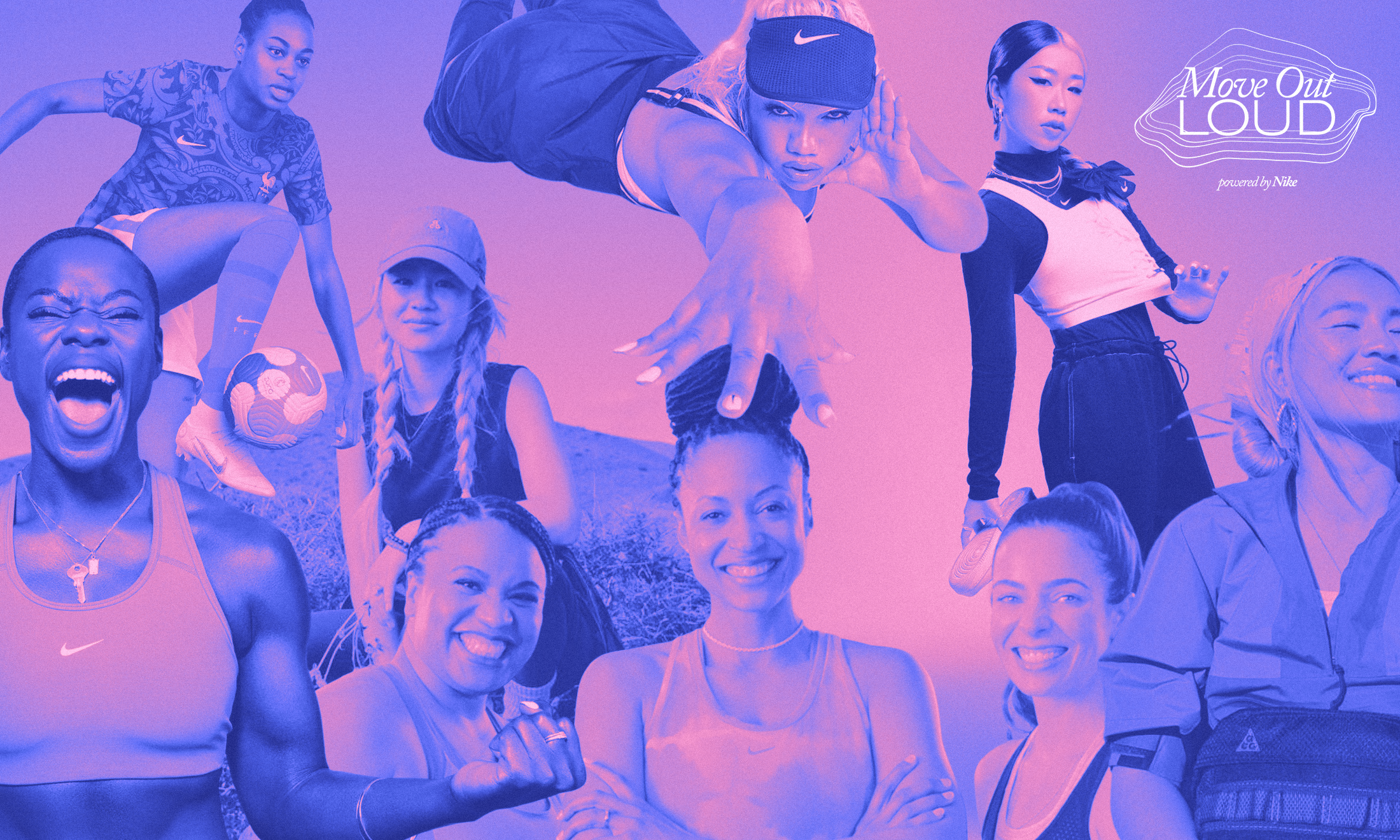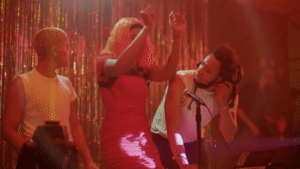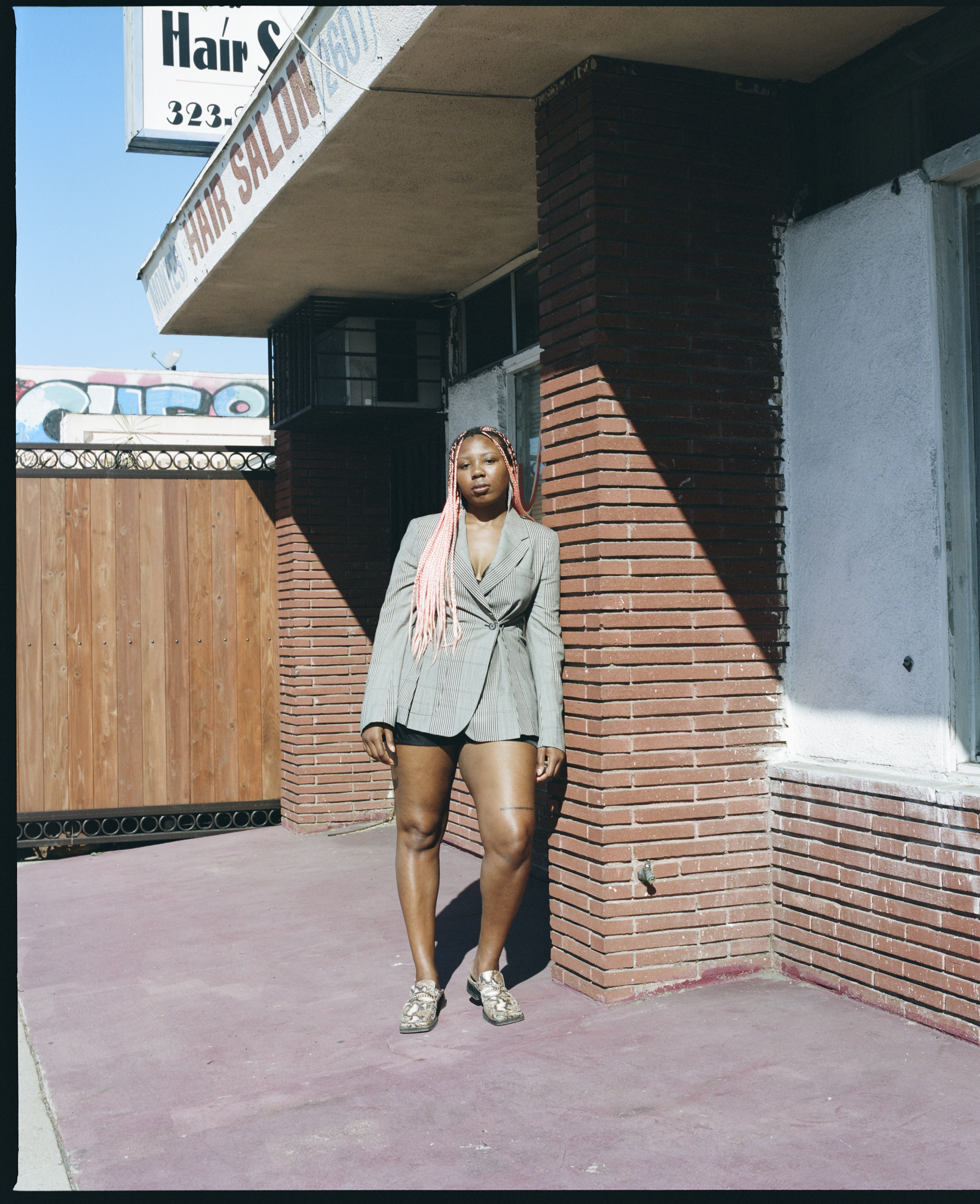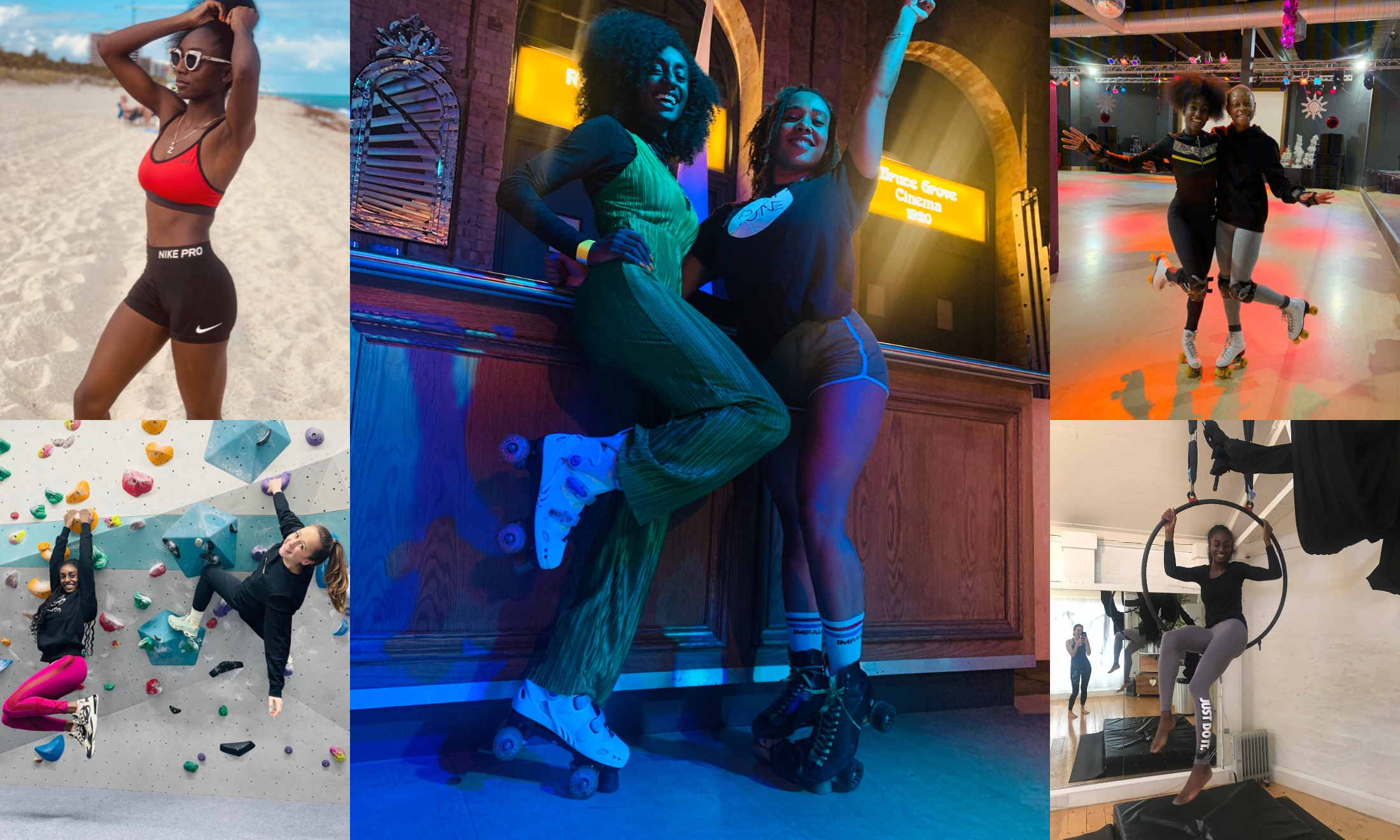How Nigeria’s Feminist Coalition became a force for change
Dami Odufuwa, a co-founder of Feminist Coalition, speaks to gal-dem about her vision for Nigeria’s women during a turbulent election season.
Tami Makinde
13 Mar 2023

Aisha Ife
On 25 February, 2023, Nigeria held its most pivotal presidential elections in its 24 years of democracy. Following 8 years of rule by incumbent President Muhammudu Buhari, a former military head of state, many Nigerians, both home and abroad, looked to the 2023 election cycle as a chance to effect real change and elect a democratic leader with the ability to lead the country through one of its worst financial crises.“A lot of us have PTSD from End SARS and we’re scared, but we know that we cannot be quiet.”
Damilola Odufuwa, a young tech founder and women’s rights activist who has played an active role in the young generation’s call for a better Nigeria, has been keeping up to date with the election through the worried accounts of family back at home and her social media timelines. “From the Twitter ban to the crypto ban, to the strikes, it’s been very overwhelming to see even if you’re not going through it. I can only imagine the millions of Nigerians experiencing this,” she says to gal-dem. “I have never seen so many of us so interested in politics and elections as we are now, and we should be.”
“I have never seen so many of us so interested in politics and elections as we are now, and we should be”
Dami Odufuwa
Despite reports of rigging at the polls, corruption, and state-sponsored violence across social media, the country’s electoral body, Independent National Electoral Commission (INEC) announced All Progressive People (APC) Candidate, Bola Ahmed Tinubu as the country’s President-Elect on 27 Feb. He will be sworn in this May.
For many young Nigerians, former Lagos governor Tinubu is a direct representation of the old guard and its corrupt way, with his haunting campaign slogan “emi lokan,” or “It’s my turn” in Yoruba. While the Labour Party’s Peter Gregory Obi represented a choice synonymous with change, Tinubu won with 8.8 million votes – a decision that many Nigerians are now rejecting due to their experiences at the polls. It’s clear from many on the ground that there’s no bargaining with their future and that of their country.
This won’t be the first time young Nigerians have taken up the mantle and fought for their collective freedom and rights. In October 2020, following the killing of a young man in the country’s southern region of Delta State, young Nigerians took to the streets with placards, and to social media, calling for an end to a now-defunct and corrupt unit, Special Anti-Robbery Squad (SARS). Dubbed the End SARS protests, this pivotal youth movement marked the first time that many young Nigerians would play an active role in the country’s governance, after years of being sidelined by their leaders.
“After October 2020, every Nigerian was pretty shocked by what happened, and that broke something in all of us – at least for me. I felt very sad, demotivated and just heartbroken,” says Damilola Odufuwa, who is also the co-founder of Feminist Coalition (FemCo), a women-led organisation which was at the forefront of these protests three years ago. Now based in London, Odufuwa spends most of her time working on her social networking app, Backdrop, a travel start up she created which merges her love for tech and travel. With a knack for saying the quiet things out loud, Odufuwa’s career, which extends to media, tech and now, activism, has endeared her to a young female audience navigating a patriarchal society with little tools at their disposal.
Founded in July 2020, a few months before the EndSARS protests swept through the West African nation, it’s impossible to believe FemCo wasn’t built for that watershed moment. Odufuwa shares that the collective had to create an organisational structure in a short amount of time, as they received a lot of donations from concerned members of the international community. During the protests, FemCo offered medical check-ups for injured protesters, a legal aid network, mental health support and created a relief fund for victims of police brutality and the families of the deceased. When asked what inspired her to take up an active role in the youth movement, Odufuwa responds “One thing that drives me in life is women. Before I could define feminism, I was feminist but I just didn’t have the language. I wanted to amplify women’s voices, younger Nigerian voices. I felt like Nigerians and women should be the ones telling their stories, so I wanted to be a part of that.”
“I felt like Nigerians and women should be the ones telling their stories, so I wanted to be a part of that”
Dami Odufuwa
FemCo’s work has had longevity and impact since the events of October 2020. In June 2022, they launched a farming initiative with an aim to financially empower low-income women. Through a partnership with a local poultry company, FemCo’s pilot programme empowered 10 low-income women to set up their own rearing business. Alongside this, FemCo has also launched an education programme with a full scholarship for girls with outstanding academic performances from low-income communities in Nigeria. Its first set of FemCo scholars have now completed their first year of secondary school education, and receive one-on-one mentorship from FemCo’s eight founding members. “Being able to empower just one person to me is enough but obviously, I want to empower millions and thousands,” says Odufuwa. While FemCo’s mission has largely been for women and young girls, Odufuwa sees the collective fight as an intersectional one. “Because I am a Black woman and I am already marginalised, I just cannot imagine not giving room for another person who is being marginalised,” she says.
The fight against the corrupt excesses of the Nigerian government is really a fight against the rot at the heart of the country’s democracy. For years, Nigeria has adopted an authoritarian system of rule, with stringent laws imposed upon the people, including the Naira scarcity and Twitter ban. FemCo’s grassroots and community-driven approach presents a welcome change to the current administration with its focus on acting with accountability and transparency, evidenced through its public display of income and distribution sheets. Despite this internal organisation, there is no one single leader. “Decentralisation gives real power to the people and it doesn’t force any system to run with a leader. Systems can run without having a leader because everyone is chipping in where they can,” she tells gal-dem. “Everyone is trying to do their part and I think that’s what matters. That’s the beauty of it all.”
“A lot of us have PTSD from End SARS and we’re scared, but we know that we cannot be quiet”
Dami Odufuwa
It’s not surprising that women whose work is focused on overturning such deep-rooted problems often have to deal with backlash from the government, law enforcement, and those they seek to help. In Nigeria’s largely patriarchal society, this is the order of the day. “A lot of challenges that [FemCo] faced, whether it’s cyberbullying or rumours, has to do with our gender and being feminists and being women,” shares Odufuwa. But, this vitriol has done little to deter the Feminist Coalition, as Odufuwa sees their mission as greater than any single individual. “A lot of us have PTSD from End SARS and we’re scared, but we know that we cannot be quiet.”
Currently, Obi’s opposition party has plans to contest the election through the court system. While there is little faith in the country’s judiciary system, there are small wins ongoing. Despite his loss, Obi’s lawmakers are winning constituency seats across the nation. Before the most recent round of elections, an overwhelming majority of the Nigerian National Assembly was made up of male legislators. Now, more women are in the mix including the Senator-elect for Nigeria’s capital city, Ireti Heebah Kingibe. For Odufuwa, the change needed is deep rooted. “For women in politics, [the change needed] goes even beyond electing the first woman president, it’s also about our lawmakers. Our lawmakers are predominantly men, and they need to make space for women.”
Alongside this, Odufuwa wants to see a safer country for women, where there is access to finances, health care, human rights, gender equality, financial equality. With young Nigerians more compelled than ever before to utilise the power of their vote, all roads lead to the country’s State gubernatorial elections slated for 18 March, which will once again mark or mar the country’s direction for the next four years. “I want Nigeria to be better because nobody is free even if they leave the country,” says Odufuwa. “You’re still Nigerian.”
You can support Damilola Odufuwa’s work at Feminist Coalition here, and sign up to her photo travel app, Backdrop here. Dami has also helped curate a gal-dem playlist in partnership with Spotify for International Women’s Day — listen here.
The contribution of our members is crucial. Their support enables us to be proudly independent, challenge the whitewashed media landscape and most importantly, platform the work of marginalised communities. To continue this mission, we need to grow gal-dem to 6,000 members – and we can only do this with your support.
As a member you will enjoy exclusive access to our gal-dem Discord channel and Culture Club, live chats with our editors, skill shares, discounts, events, newsletters and more! Support our community and become a member today from as little as £4.99 a month.

Britain’s policing was built on racism. Abolition is unavoidable

How Pakistan’s Khwaja Sira and transgender communities are fearing and fighting for their futures

Their anti-rape performance went viral globally. Now what?


